On Saturday 14 October Didier Raas led a fungi foray to the Pyramide de Saint Quentin in the Forest of Loches.
Didier teaching the group about mushrooms.
Parasol Cystolepiota sp.
The thick smooth volva (the 'egg sac' at the base of the stem/stipe) of a Caesar's mushroom Amanita caesarea (Fr. Amanite de Césare).
Ringed Milkcap Lactarius zonarius (Fr. Lactaire zoné). The stalk breaks like chalk, therefore it is either Lactarius or Russula. There is 'milk', so it must be Lactarius and not Russula. This species has a strong stinging peppery taste like wasabi, but if you find a Lactarius under pine trees it is more likely to be an edible species.
Deep Root mushroom Hymenopellis radicata (Fr. Collybie radicante).
Fungi foragers walking through the forest.
Ochre Spreading Tooth fungus Steccherinum ochraceum (Fr. Hydne ochré). The 'teeth' are more like tiny fingers, with rounded ends.
Didier carefully extracting a White Laced Shank mushroom Megacollybia platyphylla (Fr. Collybie à lames larges) from a fallen branch.
Pearly Parachute mushroom Marasmuis wynneae/bulliardi (Fr. Marasme de Bulliard), attached to an oak leaf vein.
Turkey Tail bracket fungus Trametes versicolor (Fr. Polypore versicolore).
Turkey Tail.
Some of the Top Tips that were revealed over the course of the morning were:
- There are over 250 edible mushroom species in France; over 350 toxic species and 39 of them are deadly.
- Don't use an ID app to identify mushrooms. Apps work well these days for plants, but aren't good enough for other groups, especially for mushrooms if you are planning to eat them. The most popular app in France is Champinouf. It just picture matches, so is more or less useless.
- Never rely on colour alone to identify a mushroom. Always use a suite of characteristics to arrive at an identification.

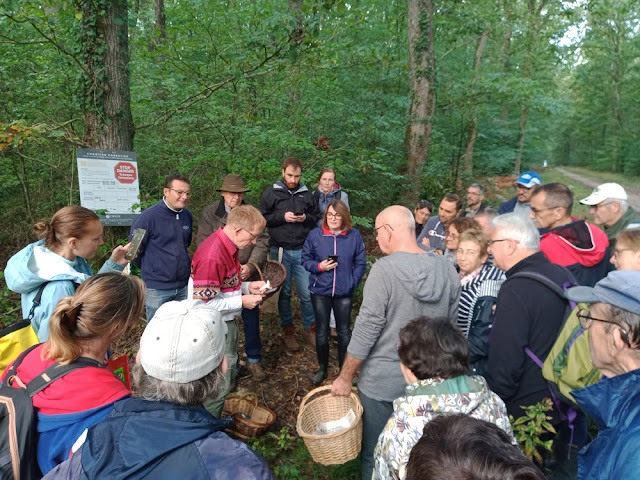
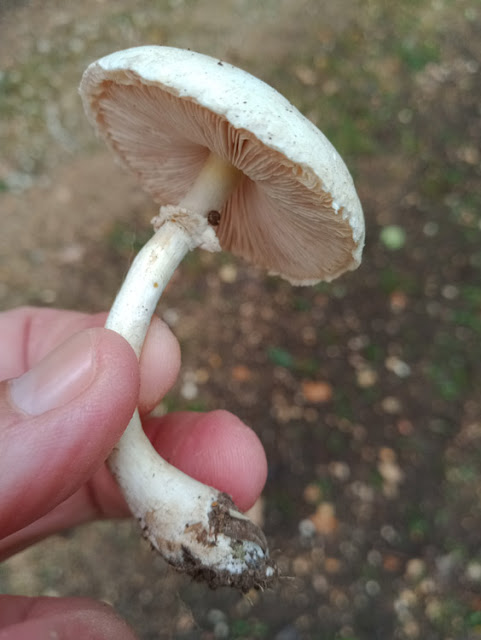

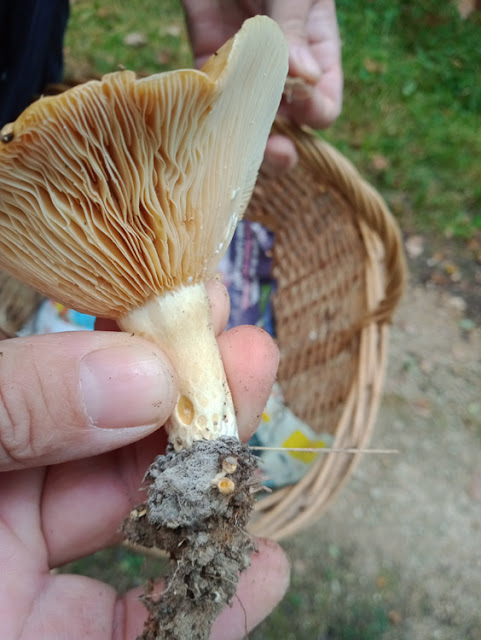
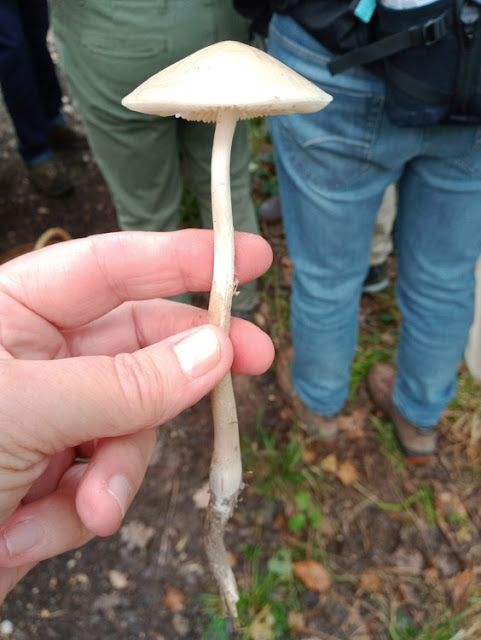

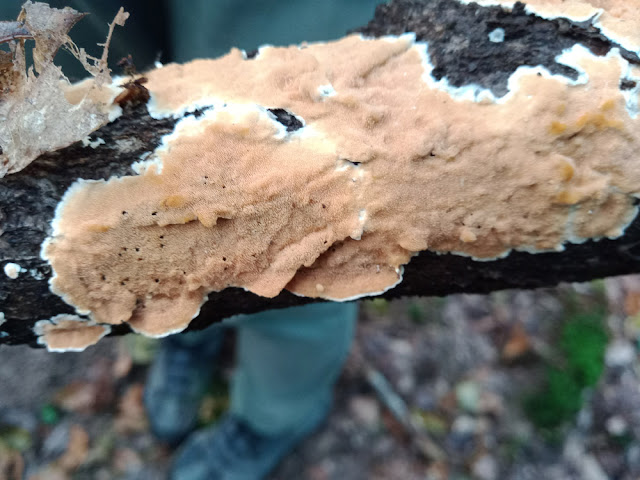
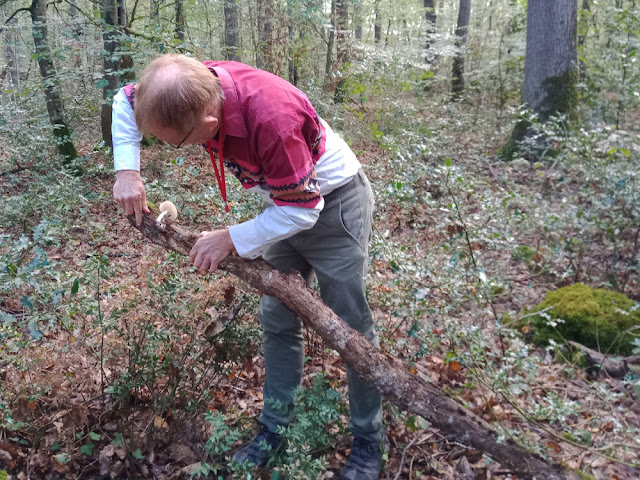
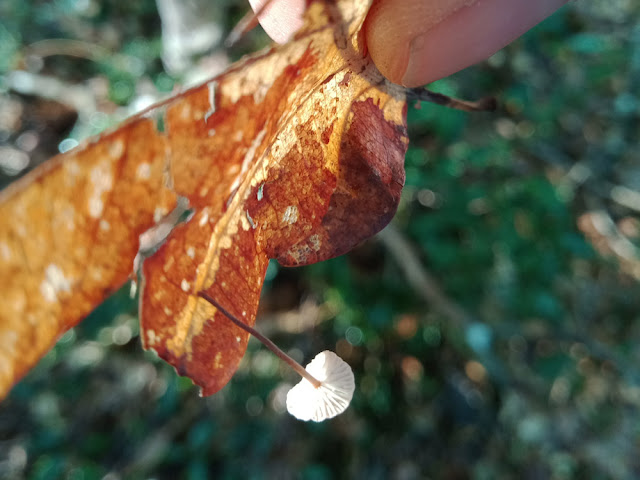
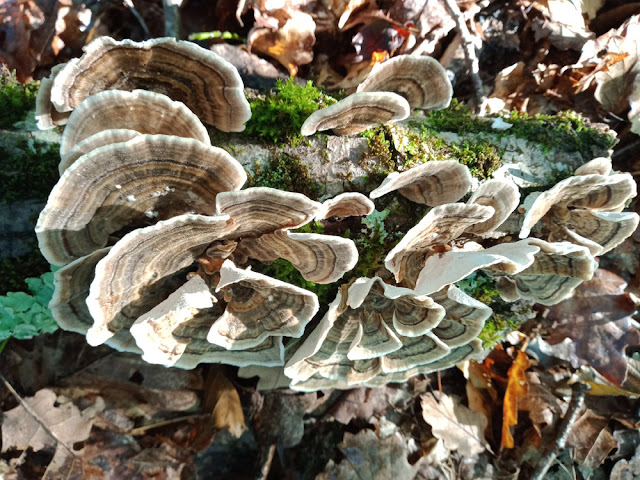
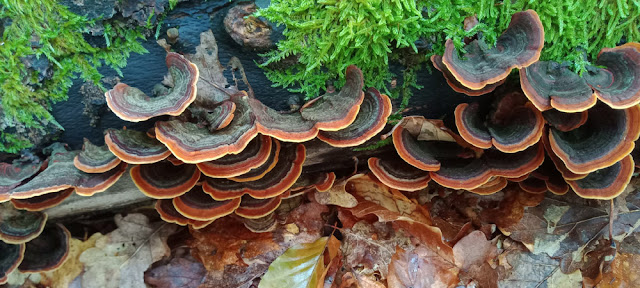
No comments:
Post a Comment